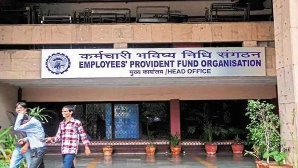The Employees Provident Fund Organisation (EPFO) has recently released fresh guidelines for processing Digital Signature Certificate (DSC) and E-Signature requests submitted by employers. Previous circulars issued by the Provident Fund Commissioner necessitate the registration of at least one DSC from an employer or authorized signatory with the EPFO.
The integration of e-signatures within the e-governance framework underscores the importance of robust authentication measures. This underscores the potential legal repercussions for non-compliance. The newly released guidelines aim to streamline the verification process for establishment-related documents. This aims to ensure seamless compliance with stringent security standards.
Pursuant to its e-governance initiative, the EPFO has permitted the use of e-sign, according to an order dated October 10. “DSC/e-sign is utilised for authentication of establishment related documents and submission of statutory returns related to ownership. As such, the use of DSC/e-sign impacts the interests of all stakeholders and any misuse bears legal ramifications for the employer,” read the order.
EPFO Guidelines: How To Submit Online Request?
Employers are required to submit an online request letter via the Unified Portal, accompanied by three specimen signatures of the designated signatory. This is to be countersigned by the employer. To facilitate request processing, a current Form 5A detailing ownership information, along with the signatory’s name and mobile number, is mandatory.
DSC/E-Sign request letters must be submitted on official letterhead, countersigned and stamped by the employer. Furthermore, it is mandatory to submit valid identification documents, such as Aadhaar or UAN cards, alongside the request letter. Field offices are responsible for verifying the authenticity of submitted Aadhaar cards utilizing authorized online verification tools.
The EPFO stipulates a 15-working-day timeline for processing requests. Employers and their authorized representatives are jointly liable for any unauthorized use of DSC or E-Sign. This underscores the critical importance of compliance with the new guidelines.



